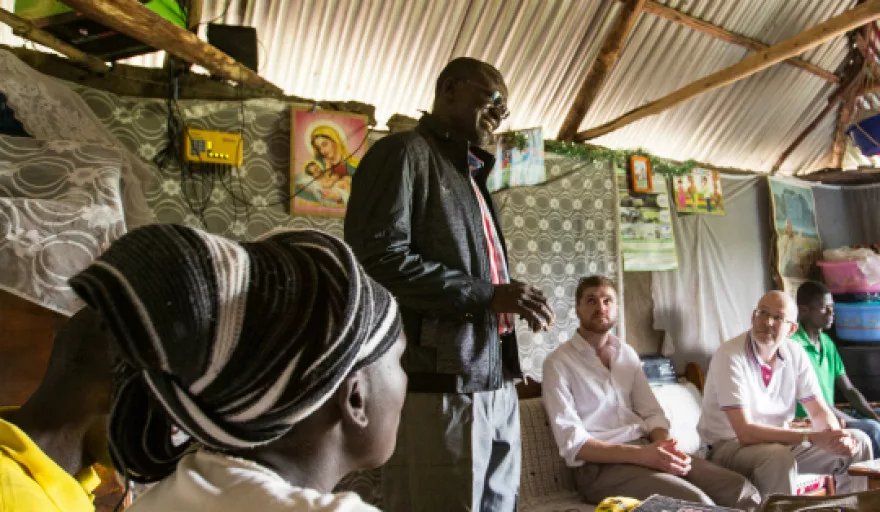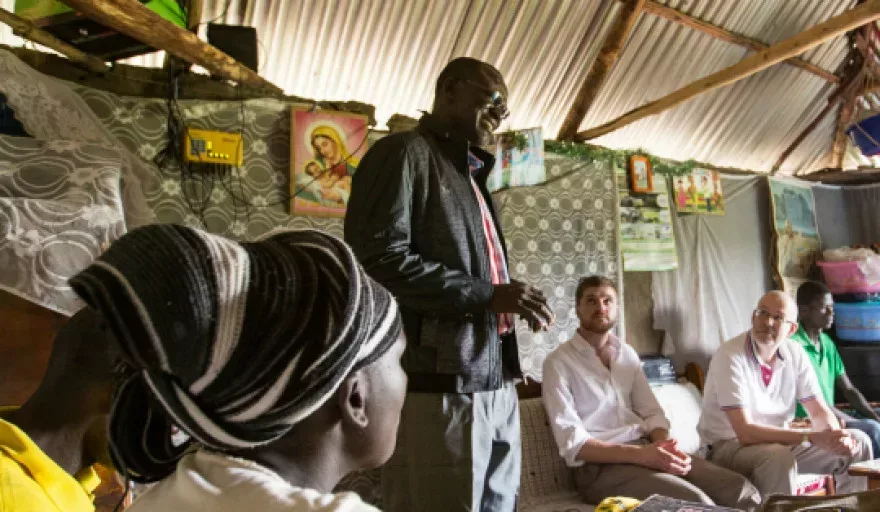
Azuri Technologies identified the opportunity for small domestic power in emerging markets using a pay-as-you-go model back in 2012 and, following a rapid piloting phase, the Company has moved to its own premises and is concentrating on the development of a printed plastic solar technology set to power rural Africa.
We spoke with the Company’s Chief Executive Officer (CEO), Simon Bransfield-Garth about Azuri’s socially-driven goals, the challenges being targeted and what the future has in store for energy provision on the continent.
Africa Outlook (AfO): Looking back to inception, what were the initial focuses and goals of Azuri Technologies, and what time frames were put in place for the kind of goals you were targeting?
Simon Bransfield-Garth (SB-G): The Company was established in 2012 from another start-up, Eighth19 Ltd, which focuses on the development of research from Cambridge University, and has become a pioneer of printed plastic solar materials. Azuri’s goals are not just to reduce fuel emissions and costs for off-grid households but to enable whole communities to be more productive from access to the knowledge economy.
Using ‘smart’ devices and the distributed renewable power needed to drive them, individuals are able to access services previously only available in urban areas, allowing productivity and income growth within the whole community. With some 600 million people currently off-grid in sub-Saharan Africa alone, it will be many years before everyone has access to power but distributed solar is delivering power to ever increasing numbers of customers that have no grid access.
AfO: To this end, what have been the core programmes, products, technologies and incentives put in place by Azuri since inception, and across what geographic footprint?
SB-G: At Azuri’s core are cutting-edge solar home systems and the unique ‘path to market’ that the PayGo business model enables. Azuri focuses on using the latest technology to address the challenges of under-served communities by delivering some of the most advanced solar lighting technology available into rural emerging markets.
Access to the consumer is via in-region partners with extensive in-country networks that facilitate rural reach, and provide a distribution network of local entrepreneurs who are integrated into the local community. Through our partnerships, we have reached isolated rural areas that would otherwise be inaccessible. This partnership model enables Azuri to reach a broad audience and is currently active in more than 12 different countries within Africa; the widest reach of any provider.
AfO: In response to what socio-economic challenges in Africa have these products been introduced?
SB-G: Africa falls victim to a number of socio-economic challenges, including access to healthcare, employment, and education, to name a few. Many of which could be dramatically reduced if there was widespread access to electricity.
Azuri products directly address the electrification issue which plagues rural communities and by doing this, also provide a basis for people to help themselves. Azuri customers spend on average 50 percent less on PayGo top-ups compared to the kerosene and phone charging fees that are replaced. This not only provides significant health benefits, but also enables families to spend the money they save on things which directly benefit them like education, food, or even agricultural equipment.
AfO: How much research and collaboration has been carried out in order to identify the optimum products required in your target region?
SB-G: Azuri has found that collaboration with all stakeholders within emerging markets is vital for success. A business model with suits one region in Africa, will probably not suit another. An example of this is the process which is carried out when calculating PayGo plans. Prior to deployment, Azuri liaises with local partners to conduct market research, so that a unique payment plan for each region may be calculated. One of the main motivations for doing this is a rural community’s revenue stream may be extremely seasonal, due to agriculture being a common source of income. PayGo allows the family to pay more when their income is greater in harvest season and less when crops are being grown. This flexibility means sustainable financing of the system on a customer level is far more achievable, as payments can be made in sympathy to other financial outgoings the family may have at the time.
AfO: What have been the subsequent results of your influence in Africa thus far?
SB-G: An independent study by Planete d’Entrepreneurs (Pd’E) was carried out in 2014, measuring the impact that Azuri products have on rural communities in Kenya. The results were astounding!
Pd’E observed that 98 percent of Azuri customers claimed improvements in health, 84 percent save money, and 85 percent reinvest the saved money in food, education, and healthcare.
The success of Azuri’s business model has received recognition from USAID’s Development Innovation Ventures (DIV), with $1 million awarded to support the establishment of PayGo solar power in Rwanda.
The two-year programme is funding the creation of a distribution channel as well as the supply of 10,000 Azuri pay-as-you-go solar systems. Besides developing Rwanda itself, the project intends to provide a template that can be replicated in similar low-income geographies.
Azuri was also announced as a Global Technology Pioneer company by the World Economic Forum and was the 2015 winner of the UNFCCC “Momentum for Change” awards at the Paris COP21 climate conference.
AfO: Looking forward, what further products and technologies are Azuri looking to introduce over the next couple of years and what effect does the Company hope and expect these to have?
SB-G: Azuri continues to innovate, both in terms of technology and its business model.
We are currently releasing products which contain a fascinating new energy management system, called HomeSmart™. This pioneering technology monitors usage patterns and daily climatic conditions to optimise the system for each individual customer. When battery charging conditions are less than optimal, for instance in rainy season, the Azuri system will tailor the amount of light and charging available to the customer, so that power is still available for as long as the customer typically requires it, basing this on pre-calculated usage patterns.
This is an example of “revers innovation”, where Azuri is deploying to extremely remote regions technology which is decades ahead of the technology generally found in “developed” markets.
Azuri continues to develop solutions, giving customers the opportunity to progressively upgrade from lighting, and small device charging, to devices which offer internet access, and products which can generate incremental income.
AfO: And looking at the bigger picture, what would you then hope and expect to be able to report back to me in terms of both Company and social achievements three-five years from now, as a result of Azuri Technologies products?
SB-G: Azuri is a leading provider of PayGo solar powered systems, deploying systems that enable households and can power small scale manufacturing and agriculture.
In three-five years, we will not have completely addressed the problem of energy access in Africa but we expect to be well on the way to doing so.




























